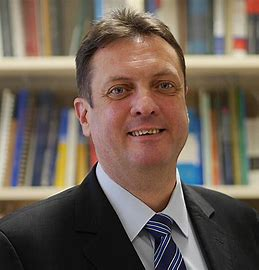
Biography:Michael Beer is Professor and Head of the Institute for Risk and Reliability, Leibniz Universität Hannover, Germany. He is also part time Professor at the University of Liverpool and guest Professor at Tongji University and Beijing University of Science and Technology, China. He obtained a doctoral degree from Technical University Dresden, Germany, and worked for Rice University, National University of Singapore, and the University of Liverpool, UK. Dr. Beer’s research is focused on uncertainty quantification in engineering with emphasis on imprecise probabilities. Dr. Beer is Editor in Chief of the ASCE-ASME Journal of Risk and Uncertainty in Engineering Systems, Part A Civil Engineering and Part B Mechanical Engineering. He is also Editor in Chief (joint) of the Encyclopedia of Earthquake Engineering, Associate Editor of Information Sciences, and Editorial Board Member of Engineering Structures and several other international journals. He has won several awards including the Alfredo Ang Award on Risk Analysis and Management of Civil Infrastructure of ASCE. Dr. Beer is the Chairman of the European Safety and Reliability Association (ESRA), President-elect of the International Safety and Reliability Association (IASSAR), and a Co-Chair of the Risk and Resilience Measurements Committee (RRMC), Infrastructure Resilience Division (IRD), ASCE. He is serving on the Executive Board of the European Association of Structural Dynamics (EASD), and on the Board of Directors of the International Association for Probabilistic Safety Assessment and Management (IAPSAM). He is a Fellow of the Alexander von Humboldt-Foundation and a Member of ASCE (EMI), ASME, CERRA, IACM and GACM.
讲座简介:Engineered systems are most important for our daily life, they are the technical backbone of our society. A key requirement is, thus, to ensure their reliable performance. Reliability and performance analysis, however, become increasingly complicated due to uncertainties and complexity. This challenge needs to be addressed by a powerful modeling and analysis technology, which is able to deliver high-quality results quickly and to capture uncertainties comprehensively and realistically. The concept of survival signature provides a technology to summarize the systems availability in a condensed, statistical manner exploiting exchangeability of components of the same type. The systems reliability can then be formulated as a conditional probability, given that a certain number of components are still working, multiplied by the probability that this condition holds, which is controlled by the lifetime distributions of the components. Hence, the analysis of the system, to determine the conditional probability, is separated from the sampling on the lifetime distributions. The condensed systems representation, the survival signature, is used as a surrogate in the sampling approach, making it highly flexible and efficient. However, the determination of the survival signature remains as a combinatorial challenge with limitation to binary state components and systems. This challenge and limitation are addressed with efficient approximation schemes. Percolation theory is used to reduce complexity of the problem significantly by pre-elimination of irrelevant parts of the survival signature. Then, selected entries of the survival signature are estimated by Monte Carlo simulation, based on which a radial basis function network is trained to deliver an overall surrogate for the survival signature. To break the restriction of binary states, a continuous structure function is introduced. The resulting combinatorial problem is bypassed by approaching the solution from the side of the survival function instead from a system state analysis. A contour representation of the continuous-state survival function is combined with the concept of diagonally approximated signature to solve this problem. The lecture will guide the audience through this development.
Illustrative engineering examples will be presented to demonstrate the capabilities of the approaches and concepts.